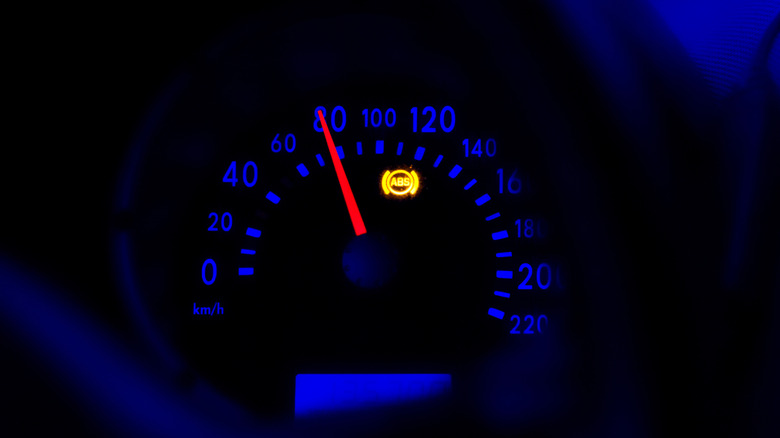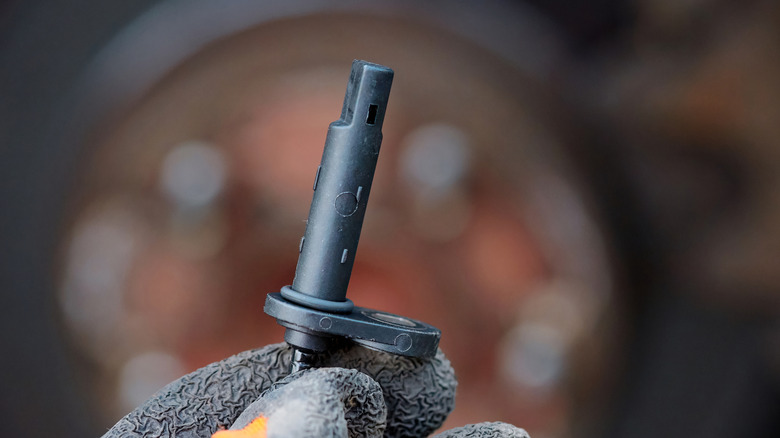When Your Car's ABS Light Turns On, Do This ASAP
There are few things worse as a motorist than the sinking feeling in your stomach when a warning light pings up on the dashboard. Some lights are worse than others, like flashing check engine lights, whereas some can probably be ignored for a little while, like a tire pressure warning light or low windscreen washer fluid indicator.
One light that should never be ignored, though, is your ABS warning light. As you might be able to guess, the ABS warning light indicates that there is a fault somewhere within the ABS system, and, as a result, your ABS system may not function as it should. ABS stands for Antilock Braking System, and it does exactly that: stops your brakes from locking up when you apply them. You won't notice ABS kicking in during normal everyday driving, but if you ever stamp on the pedal to perform an emergency stop, you'll be able to feel the ABS system doing its magic through the brake pedal. With ABS, cars stop in shorter distances and in a more controlled manner, which is why it has become a widespread standard safety feature these days.
If the ABS warning light ever pops up on your dashboard, it's imperative that you get your car to a workshop and checked out by a mechanic immediately. They will be able to plug into your car's diagnostic system and see exactly what the problem is, and in turn, how the issue can be rectified.
Here's why your ABS light might have turned on
The ABS light is a catch-all warning in a sense, as it doesn't indicate one particular fault, but rather that there's simply a fault of some sort with the system. As a result, the issue will require investigation and diagnosis before the repair can be made. Sometimes, the cause can be relatively simple, such as an inadequate amount of fluid in the brake fluid reservoir. This can bring on the ABS light, and topping it up can ultimately fix the problem. However, it's also essential to determine why the fluid was low in the first place. Your car could have a nasty brake fluid leak, which would also need addressing immediately.
Perhaps the most common cause for an ABS light, though, is that one of the wheel sensors has failed or lost connection due to dirt or debris. If these sensors fail, the information from the connected wheel will not be sent to the ECU, and this loss of connectivity will cause the ABS light to come on. Fortunately, by connecting to your car via its OBD port, a mechanic will be able to identify the affected sensor. This can then be replaced, usually quickly, and while the cost of the repair will vary depending on what type of car you own and whether you opt for OEM or aftermarket parts, a rough estimate for repair is in the region of $200 to $400.

